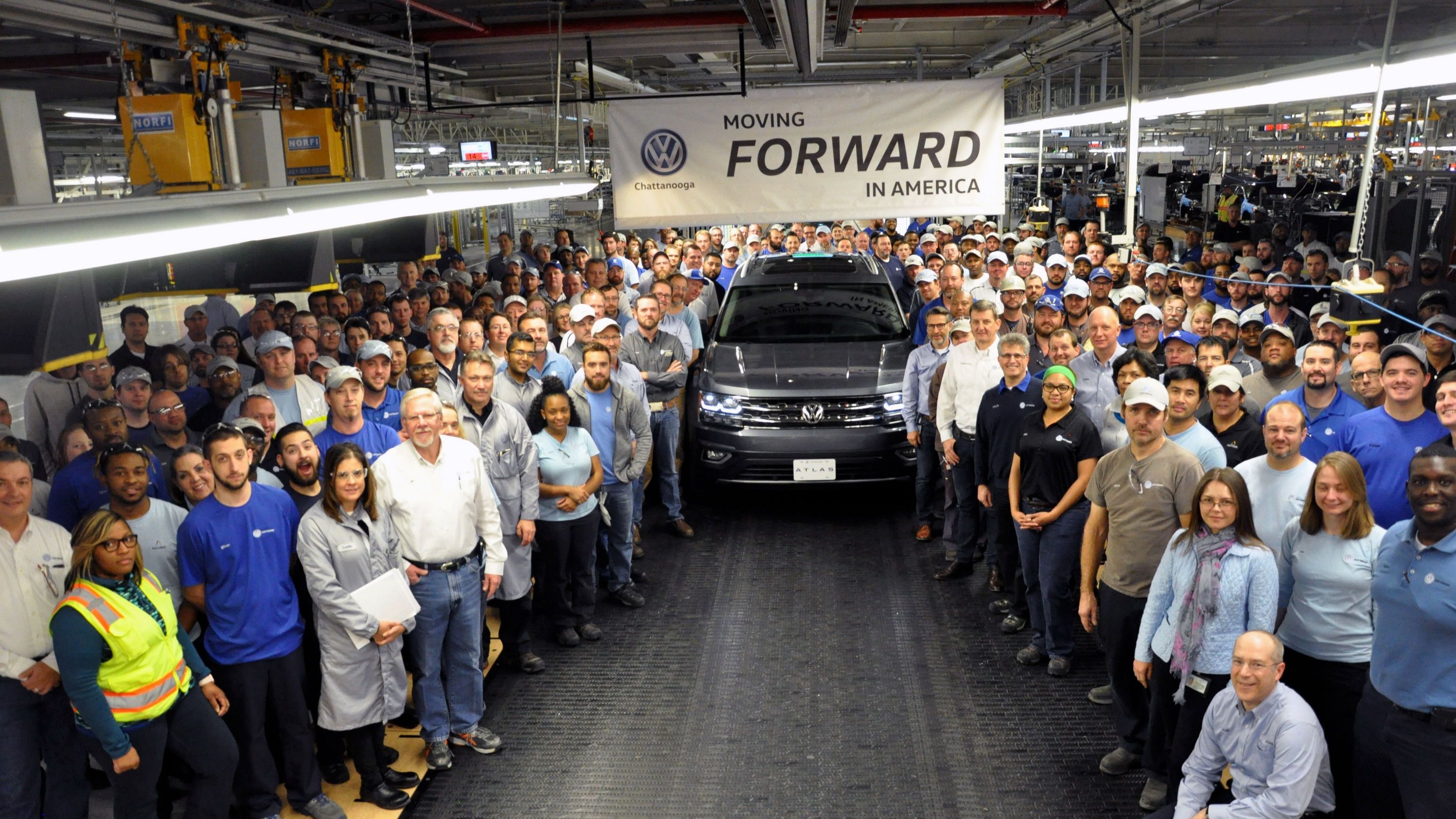Volkswagen yesterday officially began production of the 2018 Atlas SUV at the automaker’s Chattanooga, Tennessee assembly plant. The three-row crossover will begin arriving at dealerships nationwide in the spring of 2017. Volkswagen says the early start on production allows for time to build inventory.
When asked about the Atlas, Volkswagen Chattanooga’s CEO, Christian Koch, said, “I am very proud of the hard work the Chattanooga team has put in to bring the Atlas to series production. The challenge of integrating a new vehicle line while simultaneously completing a major expansion of our facility was daunting, but our team stepped up to the task and now we have taken another step towards the market introduction of the Atlas.”
The Chattanooga assembly plant has added nearly 400 jobs in conjunction with a $900 million investment associated with the Atlas production. The plant now has more than 2,800 team members and is one of the area’s largest employers. The 1.9 million square-foot plant is still relatively new, having opened in 2011 as the primary assembly plant for the Passat sedan. Both the Atlas and Passat will be built alongside each other. Both are specifically designed for the American market.
The 2018 VW Atlas nestles between the more expensive Touareg and the smaller Tiguan. Despite its placement in VW’s lineup, the Atlas is the largest of its SUVs. It features room for seven occupants within three rows of seating. Fold-flat rear seats allow for 96.8 cubic feet of cargo room. The Atlas debuts VW’s first fully digital gauge cluster, much like those found in Audi vehicles. Two engine choices are available: a 2.0-liter turbocharged four-cylinder and the 3.6-liter VR6. An eight-speed automatic comes standard and VW’s 4Motion AWD system is optional on VR6 models.
Pricing has not been announced, but the 2018 Atlas is expected to carry a base MSRP of $29,000 while the range-topping trim could sell for $45,000 to $50,000.
Continue reading for more information.
Why It Matters
The Atlas is extremely important for Volkswagen in the American market. Thanks to lower fuel prices and shifting trends, Americans are abandoning small, fuel-efficient cars for larger, more popular crossovers and SUVs. This shift left Volkswagen in a tough spot without a three-row family hauler in its lineup. What’s more, the Dieselgate scandal has rocked VW’s world with lawsuits, vehicle buy-backs, Federal investigations, and the loss of consumer trust. The Atlas isn’t just a new SUV for the German automaker – VW needs the Atlas and it needs it to succeed in a big way.
It will be interesting to see how the Atlas does once it goes on sale. We’ve already heard rumblings in our comment sections about the Atlas’ minimalistic styling being too bland for the average U.S. consumer. There is probably merit to that assumption, especially given some of the wild and edgy designs seen from other automakers like Toyota, Lexus, Honda, Ford, and General Motors. We tend to view Volkswagen’s current styling language as an Apple-like approach to clean design.
needs

